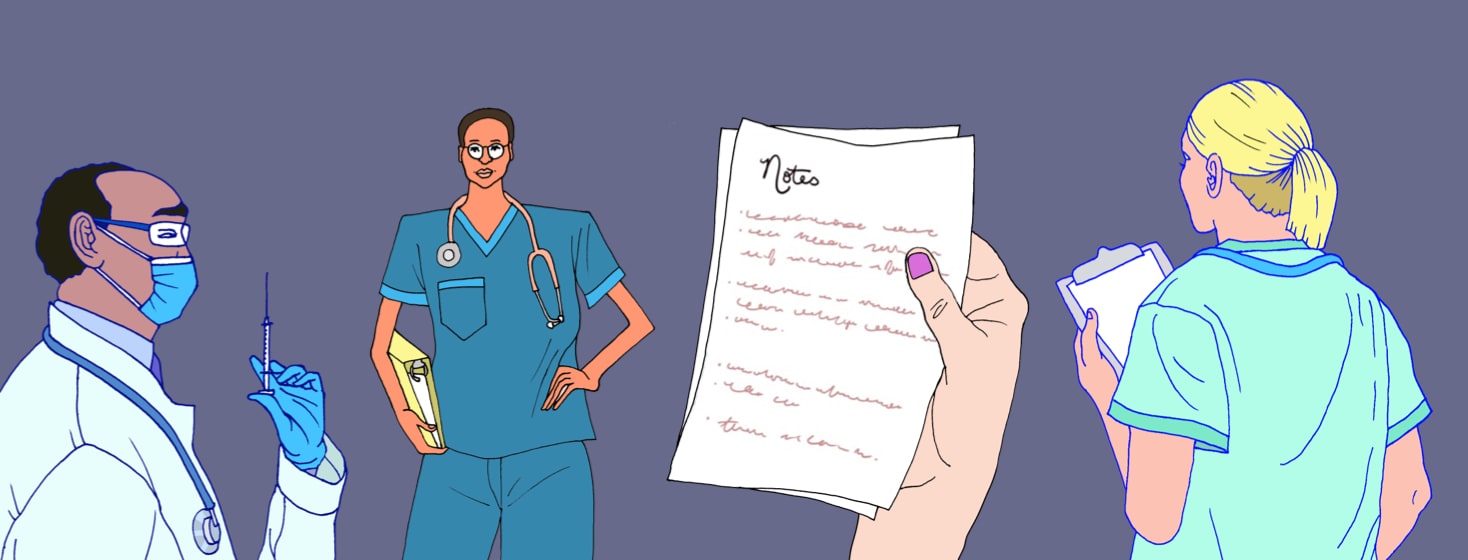My New Pre-Injection Routine for Wet AMD
Editor's Note: This article was originally written by Brown Eyed Girl, a MacularDegeneration.net Community Health Leader.
There are quite a few steps we can take before our injection for wet macular degeneration to make things easier. We tend to think more about how we’ll cope during and after the shot. We worry about dealing with anxiety, pain, or irritation. There are lots of suggestions about that on our site. But the period leading up to the shot is just as important.
My new injection routine
I was quite unprepared for my first shot, as I had it on the same day as my diagnosis. Since then, I’ve developed some routines that stand me in good stead.
Hydration is key
The day and evening before the shot I drink lots of water and try to avoid too much caffeine. It’s a good idea to be well-hydrated for injection day. My eyes often feel dry after the shot. The nurse who gives me the numbing drops told me the drops dry the eye.
Starting off fresh
In the morning, I have a good long shower and wash my hair. My injection aftercare instructions include getting no water in my eyes for 3 days, so at least I start off fresh and clean!
I also use preservative-free lubricating drops the night before and in the morning. My retina specialist (RS) said this was fine for me to do.
Sun protection
Sunglasses are important, too, and I double-check that they are in my bag. I make sure they are scrupulously clean, too. I don’t want to be fiddling with them after my shot.
Pain relief
Also in my bag are some mild pain relievers. The injection isn’t painful for me, but the stress of the whole situation sometimes brings on a headache.
Coming with questions
The night before the appointment, I go over my questions and write them down. I used to have them on my phone, but I’ve found a small notebook works better now.
I’ve developed a system to narrow down the questions I ask my RS. I ask some questions of the other practice staff first. When I see the technician who gives me the eye chart test, I ask her what my visual acuity is, and how it relates to my last results. She is always happy to tell me, and I write it down. Then she does the eye pressure test. I ask her the result of that, too, and record it.
The technician who performs the optical coherence tomography (OCT) scan doesn’t get any questions. They are too busy, and it doesn’t seem to be an appropriate time.
There's time for more questions, too
When I go into the room where I will have my injection, I have another chance to ask a few more general questions. The nurse spreads the numbing drops out over at least a 15-minute period while she hovers around. This is a perfect window of opportunity to glean a bit more information.
Over the months since I started injections, I have asked her about numbing drops versus numbing injections; how many numbing drops is too many; what to do if my eye goes red after the shot; if many people are receiving Vabysmo instead of Eylea, which I’m receiving; and anything else I need to know. At the last visit, I noticed for the first time the sign on the wall in the injection room that said, "No talking – this is a quiet area." That was a bit embarrassing!
Good news
By the time I see the doctor, I only need to ask about the results of the OCT and my progress. He usually tells me that before I ask, anyway. And so far, it’s always been good news. Now I have more time to give him a big smile and say, "Thanks very much for looking after me, Doctor."
Do you have an experience with injections to share with our community? Click the button below to submit your story.

Join the conversation